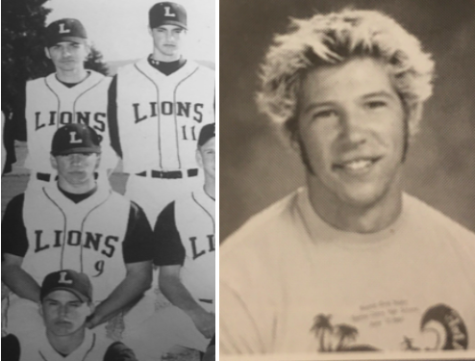Focus on Feminism: Lincoln Students Share Their Story
Lincoln girls show their support for each other. (Chau Le/Lincoln Lion Tales)
At its roots, feminism is a movement that began with the unequal treatment of men and women, and a desire for change. Today, it remains an integral part of many lives, and has even evolved to address the problems faced by modern-day women. At Lincoln, students have voiced their concerns about some of the issues important to them.
When discussing these issues, it is difficult to go without mentioning the lack of representation and diversity in the media. From fashion magazines to popular films, there seems to exist a single, ideal woman that is presented as the archetype. As a result, a vast majority of girls go unrepresented.
“We see more and more women of all sorts of ethnic backgrounds and shapes and sizes on magazine covers and movies and TV shows and I think that’s great!” said Alisala Nunes. “I think in the fashion industry there still isn’t a whole lot of representation for girls that aren’t small and skinny. I think we’re getting better at ethnic representation for women, but we still have to work on the representation of the girls who don’t fit society’s ideal representation of what beautiful is. Honestly, I’m skinny and I still have body image problems because all around me I see women with perfectly toned bodies. I feel like we need models of all shapes and sizes so girls can look and see that there’s nothing wrong with their body.”
Representation of women is an issue even within the feminist community, with many rightfully critiquing the fact that mainstream feminism often overlooks the “ugly” issues faced by minority women.
“I think mainstream feminism definitely caters to a specific group of women, [cisgender], straight, white, middle class and the topics tend to be the ideas most ridiculed and discussed,” Ronnie Rodriguez said. “There are groups who work diligently to promote a wider reaching feminism, but they are not mentioned in media as often.”
True feminism, or rather, intersectional feminism, works to further the rights of all women. Considering the diversity of students at Lincoln alone, a feminism that is not representative of all girls is a feminism that fails miserably to serve its purpose.
But what about the problems seen on Lincoln’s campus, specifically? While some students are lucky enough to go their entire high school lives without witnessing a single occurrence of even the most casual sexism, others see big problems.
Emma Heinrichs, when asked about sexism on campus, said, “on campus? Probably, guys thinking that we can’t do everything, that’s kind of a life thing guys thinking we can’t do everything they can,”
“I think the biggest issue that I see is the sexism in the dress code at this school [and] in PE, no one expects a girl to be good at sports,” Alisala Nunes said. “In class, some kid overhears me talking about video games and he cuts in with complete shock, seemingly unaware that girls were capable of playing video games. I think this sort of sexism is more subtle and harder to fix, but it’s still there and it still affects girls.”
The rising awareness of gender inequality on campus, as well as in the world, begs an important question: how can we take personal action to eliminate the problem?
Julia Garcia, when asked how to eliminate this problem, said “we can be more open with everything. I know some people who still don’t completely understand being non-binary and the many shades of gender. The way to mend this issue is to make sure not to laugh when people have questions. If you have the answers, explain! If you don’t, don’t be afraid to ask. The more information is spread, the more people will understand and be less likely to get confused or be insensitive (especially teachers). Also! I believe in bridging the gender gap. There are many things girls don’t understand about boys and boys don’t understand about girls. Don’t be ashamed of your differences, people should talk. This way guys might think twice before cat-calling in the hallways and girls will think twice before punching someone in the groin?”
“People should just work on being accepting of everyone,” Anya Harkness said. “If you heard someone say something sexist, call them out on it. They may not know it’s sexist and would change unless you let them know it’s not okay. Just work on being conscientious and aware of what you or others are saying and be willing to stand up for what’s right.”
“I think,” Ronnie Rodriguez said, “at least something should be mentioned whenever you see sexism, because a lot of people don’t recognize acts of sexism when they see them, or partake in them. Notifying a trusted authority figure will also ensure that you have support in case of an extreme situation. Oh, and the school really hates it when you rant on social media about sexist/offensive staff, so be prepared to have a very long discussion with a campus supervisor.”
Feminism and gender equality are one and the same, but this is a point often overlooked by those without much knowledge of the topic. To students who are still conflicted, one of Lincoln’s finest feminists say this:
“I would tell girls what feminism is truly to the core about,” Julia Garcia said. “I’d ask them, ‘Do you believe men & women and everyone else are equal?’ If their answer is no, then yeah, feminism is not for them. But if they believe in equal pay rate, job opportunities, school opportunities, social & political equality, having women football teams be held in as high esteem as men’s, and not being non consensually sexualized, then they shouldn’t be scared off by “feminists” who miss the point. Personally, I am all for true feminism. We’re all here, we all have our strengths and weaknesses — let’s be homies!”

Chau moved from Saigon to San Jose in the early 2000s and has been a Bay Area local for over 14 years. As a senior, she participates in the school’s...











